One of the best ways to grasp the cultural melting pot that is Israel is to sample some of its most iconic and beloved cinematic works of art.
Watch and enjoy as you learn a little bit more about the complicated society that is Israel. We’ve included websites where you can find the movie with English subtitles.
CLASSICS

Following a young Polish boy around the time of his bar mitzvah celebration, Alex Holeh Ahava is about puppy love and hilariously eccentric families.
Set during the hard economic times and uncertainty of the 1950s, this classic Israeli comedy sheds a quirky light on a newly established state, filled with new immigrants of all backgrounds just trying to find their way and make ends meet in a foreign land.
Eskimo Limon (Lemon Popsicle) Series (1978-2001)
A series of raunchy slapstick comedies co-written and directed by Boaz Davidson, the Eskimo Limon series is made up of some of the most recognizable and beloved films in Israel pop-culture history.
Following three friends in the 1950s and ’60s as they get into all kinds of wild predicaments, the films, including Sapiches (Private Popsicle) (1983), which follows the friends’ enlistment into the Israeli army, and the original movie, Eskimo Limon (1978), which kicks things off with a hilarious if somewhat inappropriate coming-of-age story, are two movies you’ve just got to watch if you want to be in the know.
BOUREKAS FILMS
“Bourekas films” are movies from the 1960s and ’70s that dealt with fundamental changes in Israeli society at the time, such as relations between Ashkenazi and Mizrahi Jewish immigrants. Here are two good examples of this genre.
Kazablan (1974) is a classic film known as the Israeli West Side Story. Taking place in the city of Jaffa, it stars the beloved singer and actor Yehoram Gaon as the head of a local gang, who falls for a girl of Ashkenazi background. Complete with dancing and musical numbers, and tales of rival gangs, it is a must-see for anyone who wants to take a deeper look into early Israeli culture.
Hagiga B’Snooker (1975) contains an immortalized scene printed on Israeli posters (and sometimes hung in Israeli bureka shops) of one of the main characters, Azriel (Yehuda Barkan) as he goofily tries to trick a rabbi into believing he is a religious Jew, while his mouth is filled with bureka pastry. The story involves twin brothers — one pious and one a hoodlum –who run a bar where people go to play snooker, otherwise known as “pool.”
CULT COMEDIES
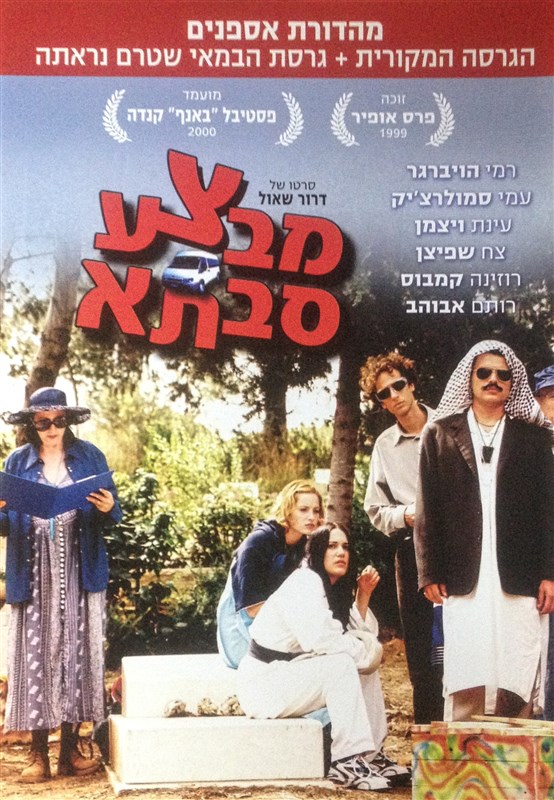
Mivtza Savta (Operation Grandma) (1999)
A cult hit short comedy, Mivtza Savta spawned the phrase “I can’t talk about it, the enemy is listening,” as well as others that Israelis still work into conversations to this day.
It is the story of three brothers from a small kibbutz in the Negev — one a jokester army officer named after a popular Israeli snack, one a nature guide, and one a cable company owner — and their joint misadventure to bring their dead grandmother to their home kibbutz to be buried.
Saving Shuli (2021)
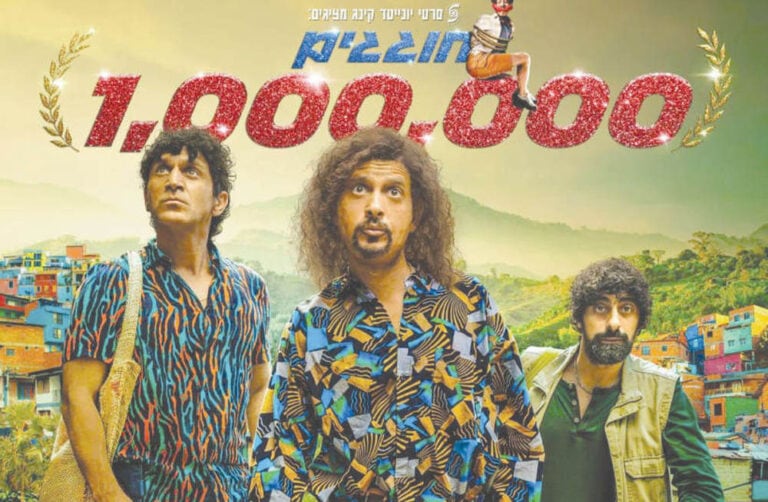
The film stars the popular comedy trio “Ma Kashur” (translated roughly as “What’s that about?”). The comedy revolves around Avihu (Tzion Baruch), who flies to Columbia with his two friends Nati (Shalom Michaelshwilli) and Bezalel (Asi Israelof) to rescue his son Shuli, who was kidnapped by a local drug kingpin.
The film received mixed reviews from critics, but was a hit among Israeli audiences, selling over one million tickets. It is the fourth highest-grossing Israeli film of all time. It trails only the cult classics: Sallah Shabati, Kazablan and the Eskimo Limon.
A LOOK AT ISRAEL’S VARIED CULTURES
Sand Storm (2016)
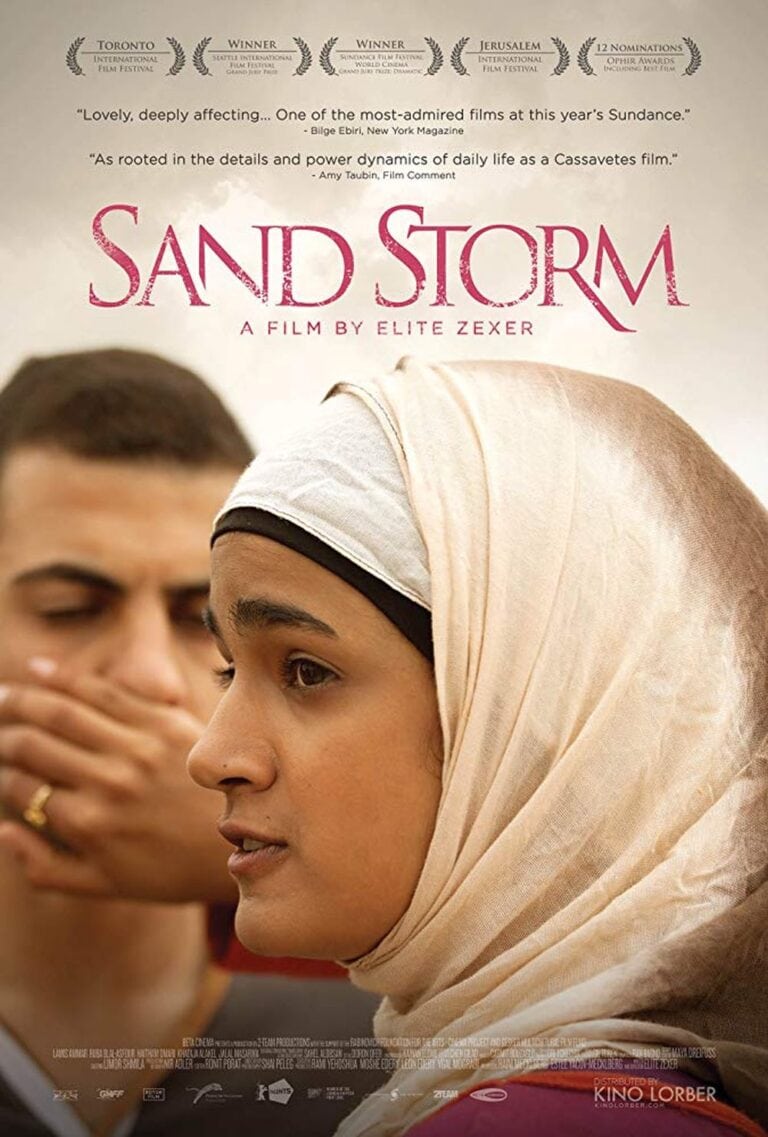
A Romeo and Juliet-style love story set in a Bedouin desert village, this all-Arabic movie is a rare look inside Israel’s Bedouin culture.
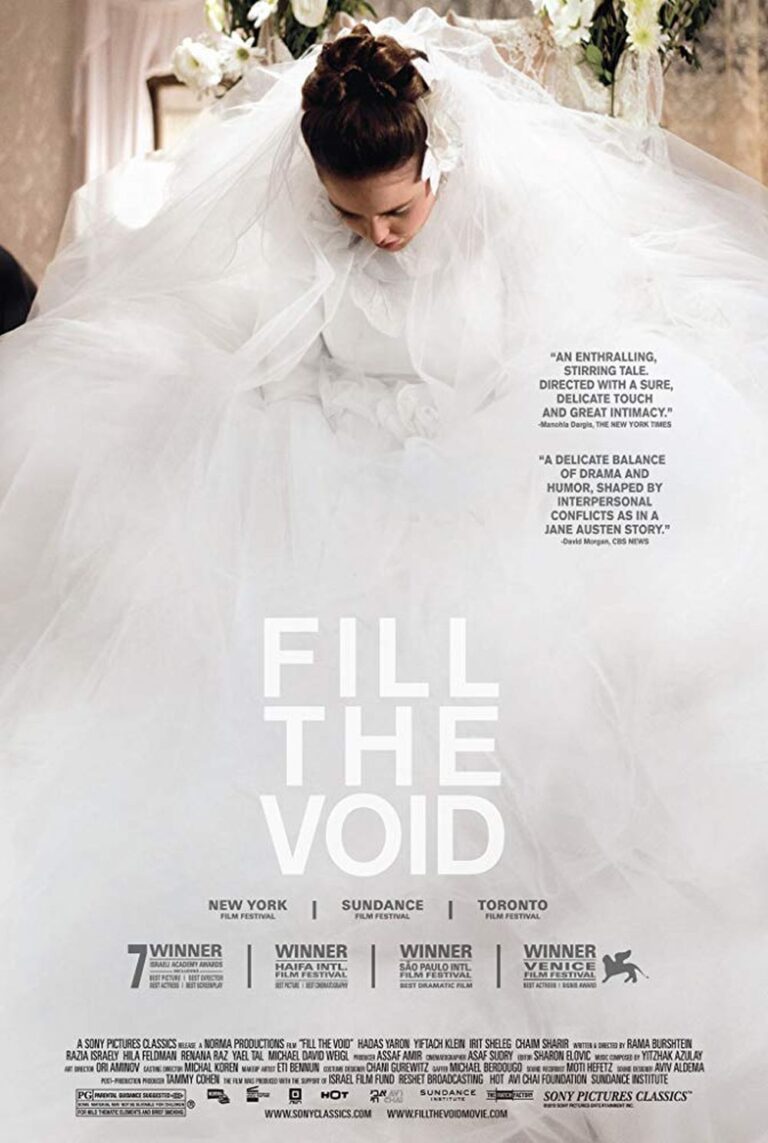
The beautiful scenery, and heartbreaking love story of a girl who falls in love with a boy from a rival tribe, are just two reasons why the film was shown in film festivals across Europe.
Fill the Void (2012)
A look into the life of a Hasidic woman set to marry, until a great tragedy turns her life upside down, Fill the Void depicts the world of Hasidic Jews in Israel and the choices they face every day. Filmed and produced by Rama Burshtein, the first Orthodox Jewish woman to make a full-length feature film for international distribution, this piece of cinema helped pave the way for Orthodox Jewish voices in Israeli film, and for audiences to see life through a female lens.
Seven Blessings (2023)
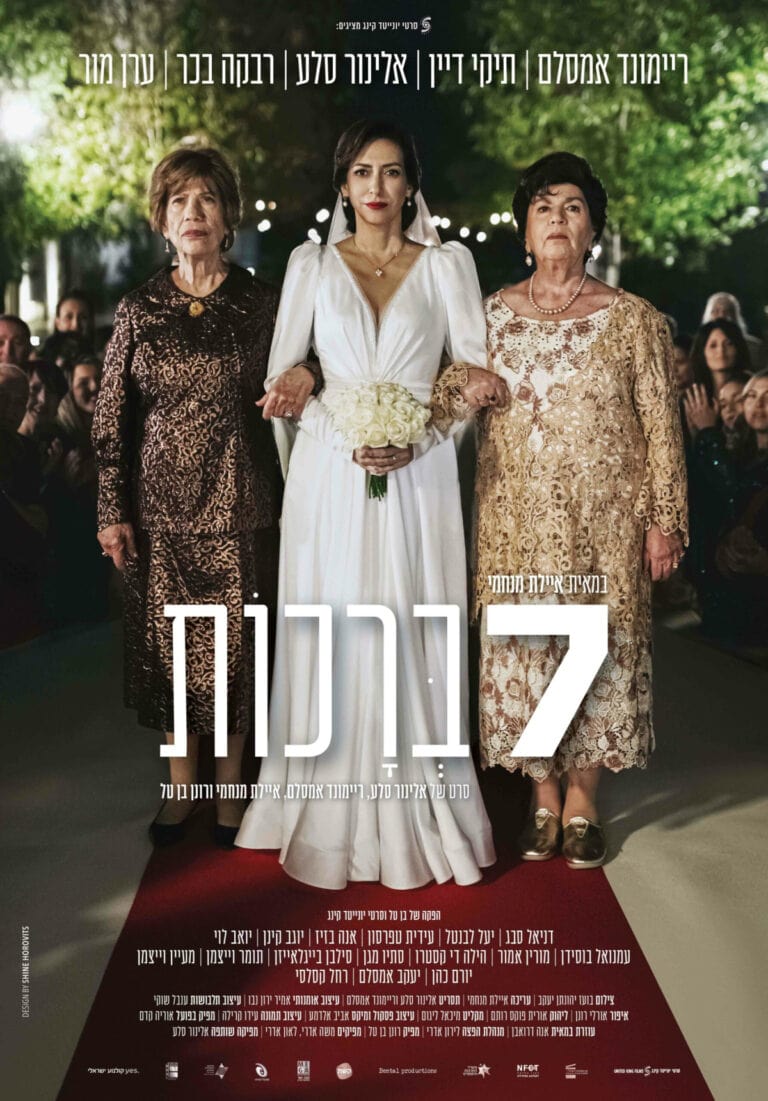
The Israeli comedy-drama was also directed by a woman, filmmaker Ayelet Menahemi. It nabbed an unprecedented 10 Ophir Awards, considered the Israeli equivalent of the Oscars, and sold over a quarter of a million movie tickets.
Set in the 1990s Jerusalem, it follows the story of one Jewish-Moroccan family. When Marie finds out that her mother’s sister is in fact her biological mother, she is left hurt and confused. But she soon finds out the family was only following decades-long Moroccan-Jewish tradition when she was switched at birth, and she should, in fact, be thankful.
Hakala HaSurit (The Syrian Bride) (2004)
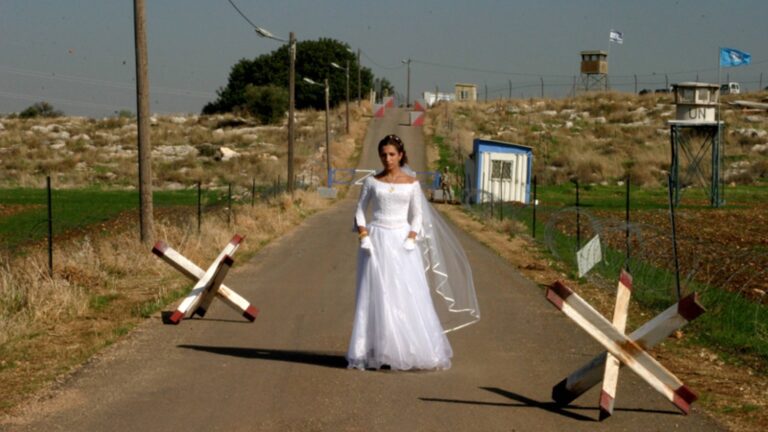
A story of sacrifice, The Syrian Bride takes place in a Druze village in the Golan Heights where a young woman is promised to a successful Syrian suitor living on the other side of the border. Prepared to leave her family behind for all time, she finds her goodbyes and subsequent wedding delayed as she must deal with the bureaucracy of two very different countries.
Another film that lovingly displays an Israeli population and culture rarely committed to film, it is a testament to how international conflicts affect the lives of everyday citizens and how ordinary people can learn to rise above.
Live and Become (2005)
The story of an adopted Christian Ethiopian boy posing as a Jew in Israel following Operation Moses in 1984, this award-winning French-produced film shows the touching and raw reality of an immigrant as he passes major life events, from his bar mitzvah and service as an army medic to his marriage to a woman who does not know the complete truth about his past.
POLITICAL MOVIES
Incitement (2019)
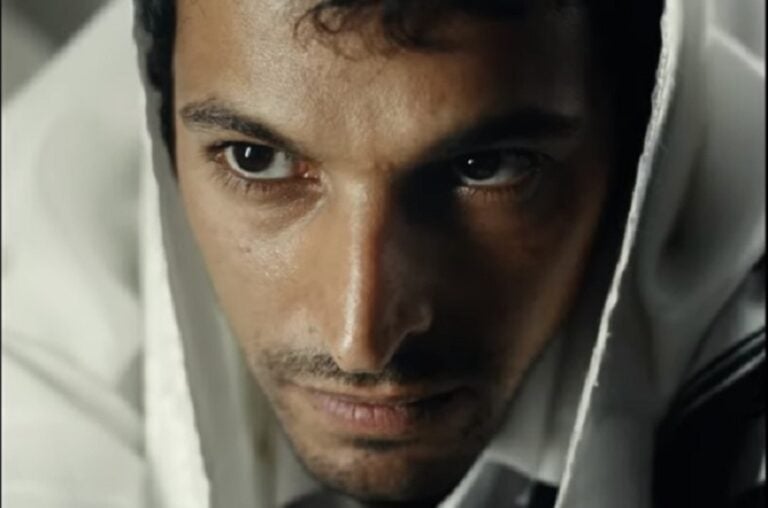
The title of the film in Hebrew (“Yamim Noraim”) literally translates as “Terrible Days.” But, the filmmakers likely believed the title was too on the nose for international audiences, opting to give it a more marketable name.
Directed by Yaron Zilberman, the plot follows the events that led to the assassination of late Prime Minister Yitzhak Rabin by Yigal Amir. As Amir’s personal life takes a hit, the young university student finds solace in right-wing activism. His views become more and more radicalized as the political environment of the time gets flooded with incitement.
Golda (2023)

Produced by a UK production company, the film is directed by Israel’s Oscar-winning director Guy Nattiv and has a majority Israeli cast. Set in 1973, the film follows Prime Minister Golda Meir as she navigates the days following the breakout of the Yom Kippur War. Under pressure from US Secretary of State Henry Kissinger and faced with a cabinet that slowly starts to crumble as Israel’s victory is fading out of sight.
The film faced criticism for casting Helen Mirren as Meir on the account of her not being Jewish. Mirren called the criticism “legitimate,” but said her casting was in full agreement with everyone involved in the film. Mirren was initially cast following the request from Meir’s grandson Gideon.
ARMY/WAR TIME MOVIES
Givat Halfon (Halfon Hill) (1976)
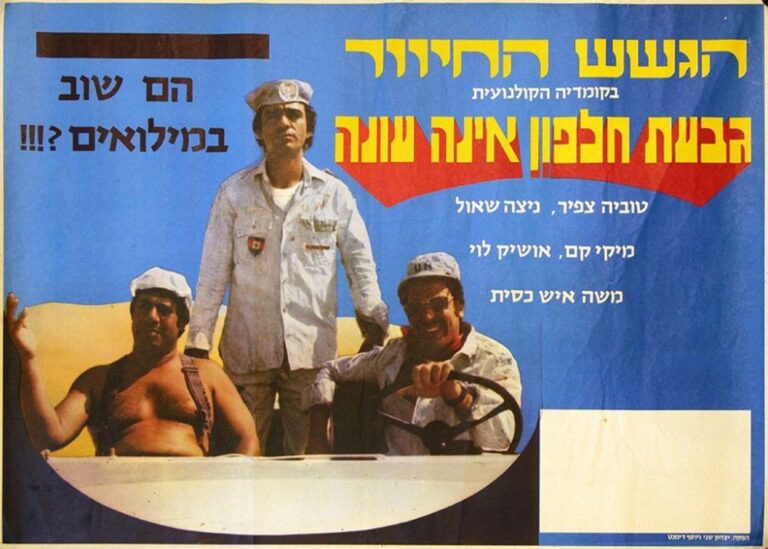
A satirical comedy centered around a group of ragtag reserve soldiers watching the Israel-Egypt border from Sinai, this classic Israeli comedy lightheartedly pokes fun at the IDF while also getting in plenty of personal shenanigans and jokes about soldiers who are just winging it as they go along.
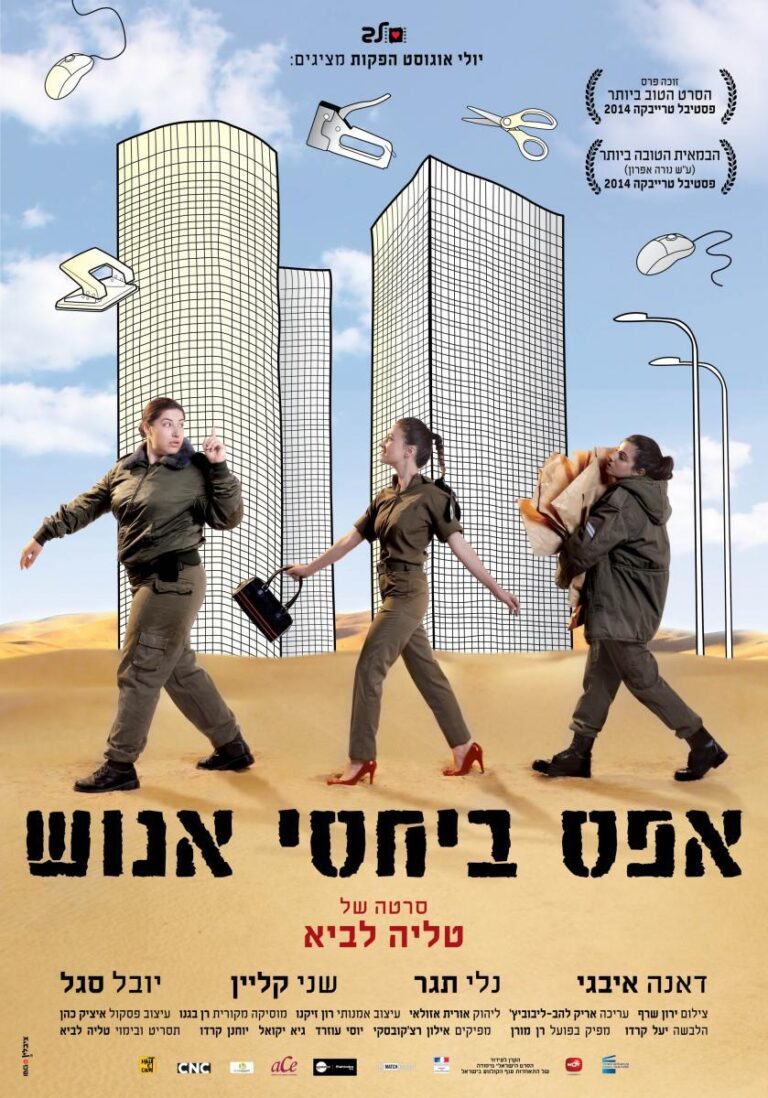
Zero Motivation (2014)
Want to know what it feels like to serve in the IDF in a not so glamorous role? Zero Motivation shines a spotlight on jobnikim-– soldiers with sometimes tragically boring desk jobs, and as is the case with the female soldiers in the film, little to zero motivation.
The film itself, the work of writer/director Talya Lavie, shows the journey of one soldier hoping to be promoted to a more respectable position in the military headquarters in Tel Aviv, but mostly shows the nitty-gritty of the daily grind of army life in a tragicomic way.
Rock the Casbah (2012)
Titled after the 1982 pop music classic by the Clash, the film takes place during the First Intifada. Set in 1989 Gaza, it follows four soldiers on a rooftop of a Palestinian family home, in a stakeout for the killer of one of the troops. As hours pass, the stress takes its toll and the tensions between the four soldiers begin to grow. They navigate the interpersonal relations between each other, while still trying to catch the terrorist who murdered their friend.
INTERNATIONAL AWARD WINNERS
Sallah Shabati (1964)
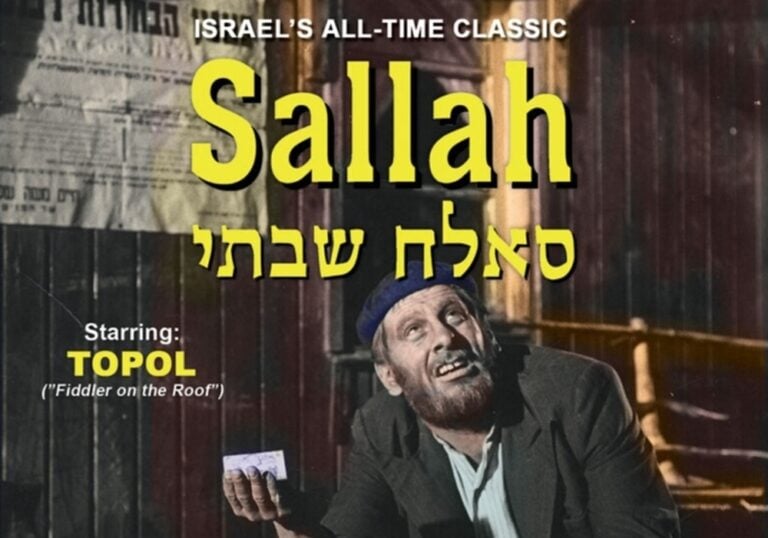
The film is arguably one of the most successful Israeli films of all time. Not only is it still in the top three of the highest grossing Israeli films, but it was also nominated for an Oscar in the Best Foreign Language Category and won a Golden Globe for the best Outstanding Foreign Film.
The comedy stars the Fiddler on the Roof actor Chaim Topol, who plays a Mizrachi Jewish immigrant named Sallah Shabati. Upon his arrival in Israel, Sallah is given one broken down room to live in, which he is supposed to share with his pregnant wife and seven children.
At the time of its release, the film was considered to be another “Bourekas film.” However, over the years the comedy has become a classic of Israeli cinema, often being shown in class to school students.
The Band’s Visit (2007)
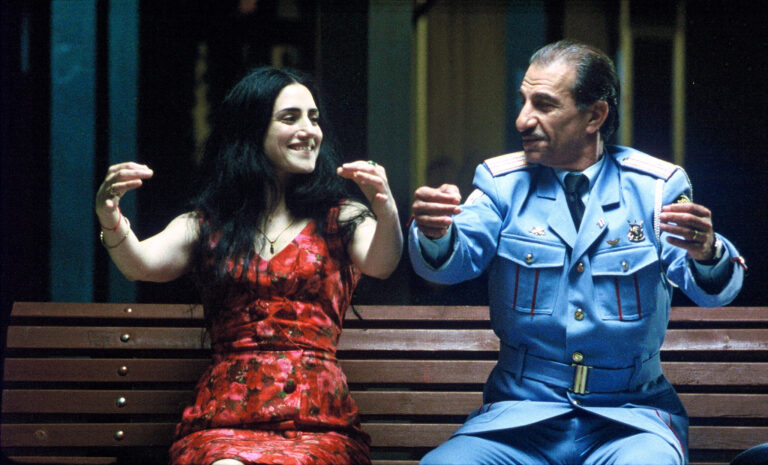
A movie turned Tony award-winning musical, this movie, based on the book by Itamar Moses, tells the story of the Egyptian Alexandria Ceremonial Police Orchestra who come to Israel to play at the Arab cultural center in the central city of Petah Tikva, but whose mispronunciation of the town’s name leads them instead on one big misadventure in the fictional southern desert town of Beit HaTikva. The visitors soon learn that they are not so different from the Israelis who take them in and care for them while they wait to board the next available bus, which only reaches the remote town the following day.
Waltz with Bashir (2008)

A trip into the world of one Israeli soldier’s PTSD stemming from his fighting in the first Lebanon War in 1982, Waltz with Bashir is a unique and serious animated film that explores the mind and experiences of the film’s main actor, writer, and director, Ari Folman, as he sorts his way through the events of his past. Nominated for an Oscar in the international film category, it is a dark and provocative, yet thought-provoking journey, narrated in English and Hebrew.
Medurat Hashevet (Campfire) (2004)
The story of a widow and her two daughters trying to make the most of life, Medurat HaShevet is a beautiful award-winning film by Joseph Cedar that takes place in the 1980s.
At a time when many Israeli settlements were first being formed in the West Bank, the mother is desperate to be accepted into a newly forming community, while the eldest daughter aims to escape her boring pious life and the youngest daughter suffers an unfortunate event while at a youth group event meant to celebrate the Lag B’Omer holiday with a large bonfire in the forest.
Ahed’s Knee (2021)
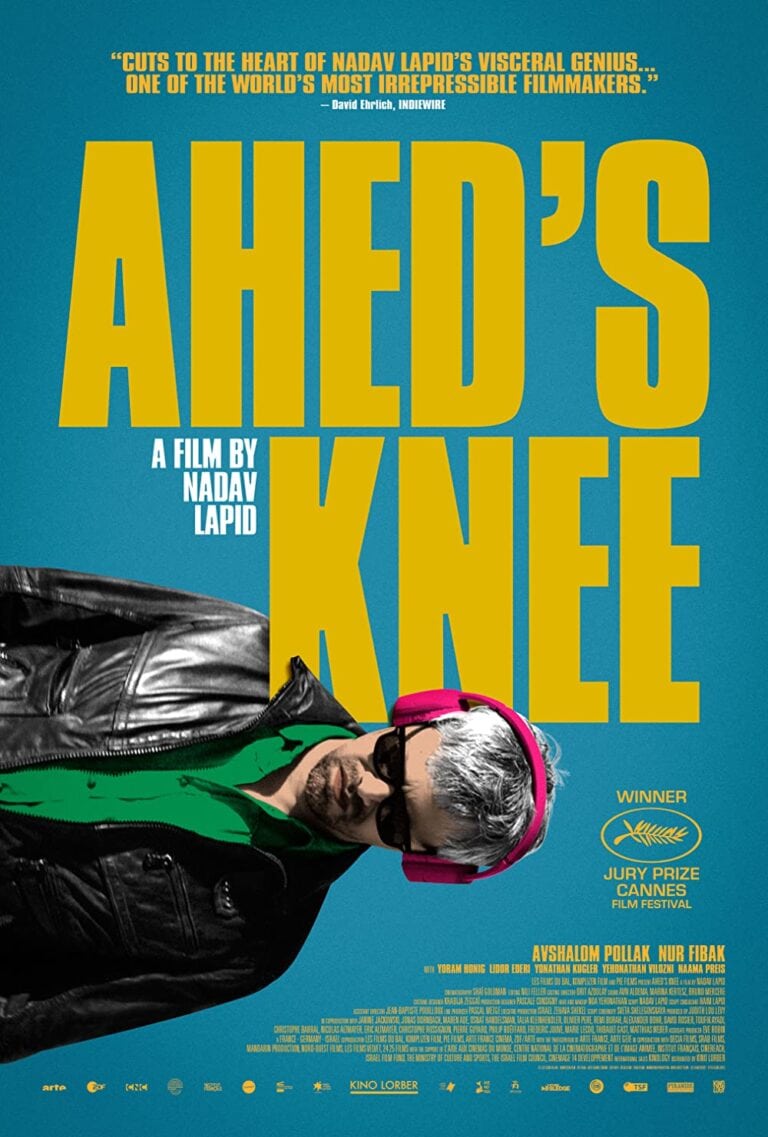
This film, directed by Nadav Lapid, drew a lot of controversy at the time of its release. It references contentious Palestinian activist Ahed Tamimi and explores the topic of free speech in Israel, including whether it’s conditioned on political views. The film received mixed reviews from Israeli critics, but won the Jury Prize at the 2021 Cannes Film Festival.
